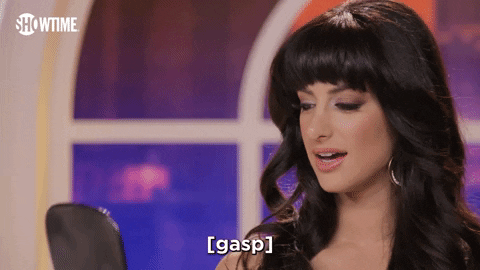Myers-Briggs vs. Enneagram: What is your personality type?
I'm showing you mine, now show me yours
Today you’ll learn about:
✅ 2 personality decoders: the Myers-Briggs Type Indicator (MBTI), and a lesser known system called the Enneagram
✅ My types: I’m a Myers-Briggs “INTJ,” as are Elon Musk and Jane Austen. I’m also an Enneagram Type 3 (the Achiever), whose strengths are inspiring others and personal perseverance, but whose weaknesses are workaholism and fear of failure
✅ How to test yourself and why it’s important: Doing so helps you make informed decisions in personal and business matters
Who are you? Why are you the way you are, really?
Perhaps your company issued a Myers-Briggs personality test, or you've seen mentions of it on social media, with cryptic four-letter acronyms like “ENTJ” or “INTP” that supposedly define your personality.
But there’s also a less commonly known personality decoder called the Enneagram, believed to hail from two South American spiritual-psychology teachers and psychiatrists.
Content entrepreneur | Agency Founder & CEO | Author | Featured in Forbes, Wall Street Journal, Business Insider, Cheddar TV, HuffPost | Join more than 2,500 people who follow Shindy for lifestyle and business advice:
Neither are to be confused with astrology, which offers another set of wisdom based on your zodiac sign, place, date, and time of birth. This article also attempts to relate your Enneagram type to your star sign.
My history with MBTI
I was first introduced to MBTI (full name: Myers-Briggs Type Indicator) more than a decade ago at one of my corporate jobs.
It was created by a mother-daughter team who based their theory on Carl Jung’s 1921 book Psychological Types.
The MBTI categorizes individuals into one of 16 personality types based on four dichotomies: Extraversion/Introversion, Sensing/Intuition, Thinking/Feeling, and Judging/Perceiving.
Consult this chart to learn more:
Today, it’s become quite formalized and sprung into business of its own, with free online tests like this or this official one for $50.
My history with the Enneagram
Not too long after learning my MBTI type, I learned about the Enneagram while at a dinner party in Copenhagen.
The eccentric hostess quite excitedly introduced me to her copy of The Wisdom of the Enneagram, having only recently discovered it herself.
I purchased it when I returned to the states, and believe it to be the seminal book about finding and understanding why I am and have been a certain “way” my entire life.
Of course today there are all sorts of online interpretations and meanings but at the root of it all, stick to the book.
Why you should know your MBTI or Enneagram type
For me these are just steps in your life journey to know and understand what fuels your fire.
Just like understanding what's going on inside your body physically when you take a Prenuvo scan or go for lab tests, I believe when you have awareness into your brain's pattern of thinking, you know how to make more informed and insightful decisions in both personal and business matters.
My Myers-Briggs type: INTJ
I’m an INTJ, which means I am introverted, intuitive, thinking, and judging.
I’ve only taken the test once, but yes, I would largely agree that I am:
(I) introverted and more inwardly focused (though people who really know me know my big laugh and dark humor),
(N) look at things big picture,
(T) and am level-headed though enjoy finding flaws in arguments, and
(J) prefer to settle matters with clear instructions and plans.
Apparently this personality type is highly rare, and famous INTJs include Elon Musk, Mark Zuckerberg, Nietzche, Jane Austen, Sartre, Stephen Hawking, John Maynard Keynes, and also the more notorious Lenin and Ted Kaczynski.
Alas the internet isn't always correct, and I'm not entirely sure how said famous people’s types were discovered unless they publicized their test results themselves, but we’ll assume accuracy and due diligence.
My Enneagram: Type 3, the Achiever
According to a self paper test and a recent online test using this free scoring tool, I reaffirmed my type.
The 3 comes with strengths which include helping others feel inspired and stay focused.
They are themselves highly capable and accomplished, and present a winning image, are efficient, and full of perseverance.
But on the flip side, their weaknesses include workaholism, getting lost in vanity, inauthenticity, suppressing emotions and losing touch with themselves and others, and casting aside ethics for the sake of opportunity, with their ultimate Achilles Heel being the fear of being seen as a failure and having no value.
Wow! I feel like you know me.
Now, it’s your turn. Who are you really?
And why do you do things the way you do?
Comment below or reply — I showed you mine, now show me yours.
**
Until next time,
Shindy
On Instagram + TikTok
***
Did you enjoy this newsletter?
Please like it by clicking on the heart at the very top or bottom of this post, or share it with you someone you think would find value in it. 🙏







